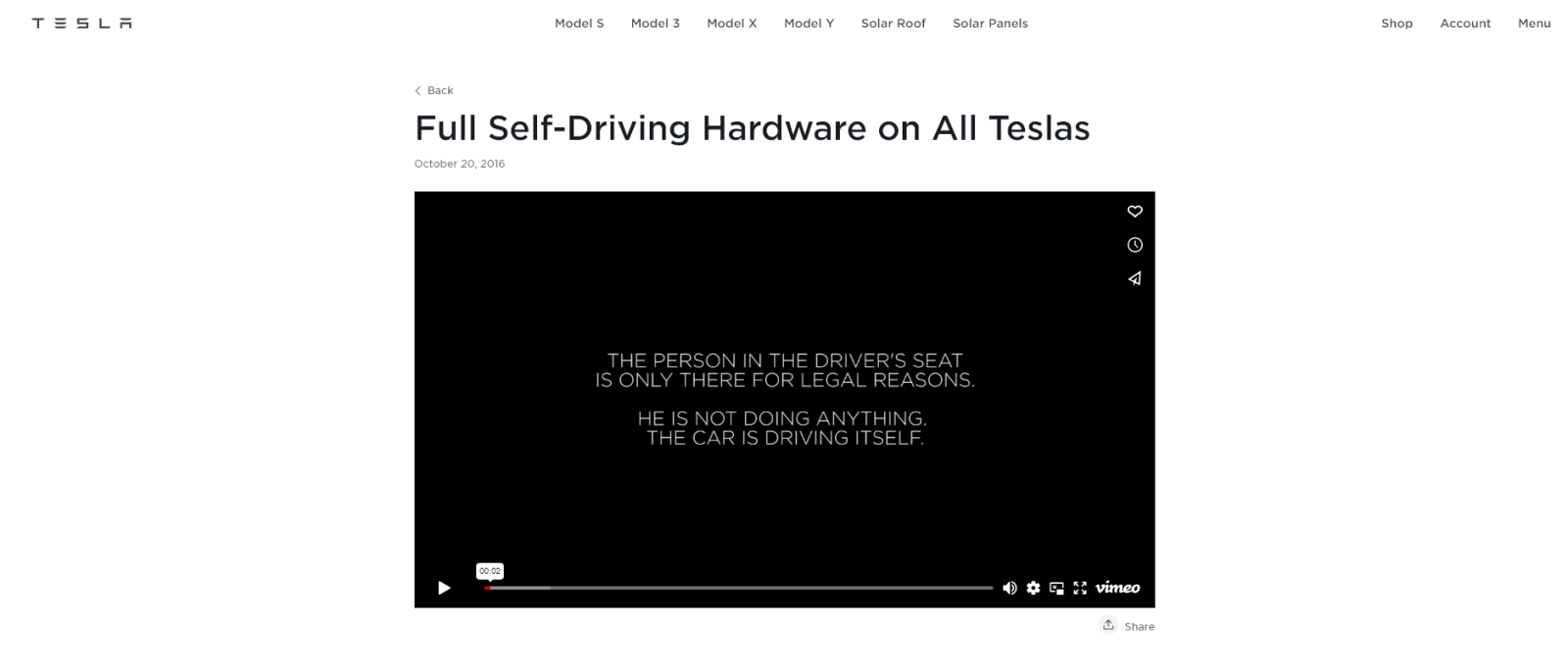
There are a lot of media reports about Tesla having ‘staged’ or ‘faked’ a self-driving video in 2016 today after the testimony of a Tesla Autopilot executive was released, but here’s the full story.
In 2016, Tesla announced that all its vehicles going forward would be equipped with the hardware necessary to achieve full self-driving capability through software updates in the future.
Seven years later, Tesla has yet to deliver on that promise, but the company is still promising it and releasing software updates that bring the capability closer.
After making the announcement in 2016, Tesla released a video demonstration of its self-drivng technology.
The video showed a Model X driving by itself around the Bay Area for a few miles – navigating some stop signs and traffic lights before entering Tesla’s parking lot.
Here’s the full video:
That was seven years ago, so why are we talking about it now?
Today, a lot of media reports are coming out with headlines about Tesla having “staged” or “faked” the video.
Those reports are all based on the testimony of Ashok Elluswamy, director of Autopilot software at Tesla, as part of the discovery for CEO Elon Musk’s trial brought by shareholders over claims that he misled them.
In his testimony, Elluswamy confirmed that Tesla used 3D mapping on a predetermined route to create the video. He also said that Tesla did the run multiple times and that the test drivers intervened on several occasions.
The engineer added:
“The intent of the video was not to accurately portray what was available for customers in 2016. It was to portray what was possible to build into the system.”
Elluswamy also confirmed that the Autopilot team put the video together as a “demonstration of the system’s capabilities” at the request of Musk.
There’s nothing really new here
We already knew that Tesla had to do all of that to create the video back in 2017.
In 2017, Tesla released its Disengagement of Autonomous Mode report with the California DMV and confirmed that it drove 550 autonomous miles in self-driving test vehicles with 168 disengagement events in 2016.
While the data was for the whole year of 2016, all of the miles were driven within the few weeks leading up to the demonstration video.
Tesla clearly didn’t have the capacity to release a self-driving system at the time because it had only just begun designing its own self-driving technology after stepping away from Mobileye’s driver assist system.
As we reported in 2017, Tesla ran a pre-determined route many times over in order for the system to be able to do it once without disengagement for the video.
There’s an argument that the video is indeed “staged” based on that, but the real thing in contention is that the video starts with Tesla saying this:
“The person in the driver’s seat is only there for legal reasons. He is not doing anything. The car is driving itself.”
Some think that the comment is inaccurate, but the car is actually driving itself in the video, which is unedited. It’s just that it can’t do it off the lot. Tesla had to custom-build software and maps for it, but the automaker never claimed otherwise.
Electrek’s Take
I’m not sure why the media decided to run with those comments because they don’t really add anything new that we didn’t know since 2017.
It’s certainly not an ideal presentation of the video, but I also don’t think you can make the point that Tesla lied or was even misleading with the video. It was showing what it planned to achieve with its self-driving and that it could do it right now with some custom software. The video showed the car navigating this route by itself.
And, in fact, now Tesla could do this same route with an off-the-lot vehicle equipped with Full Self-Driving Beta.
FTC: We use income earning auto affiliate links. More.